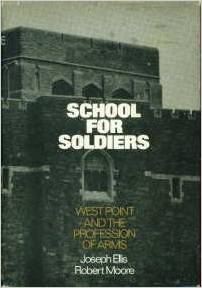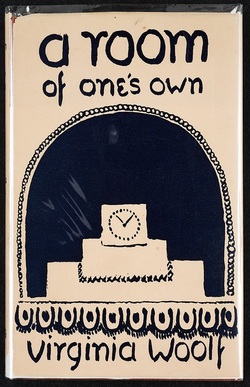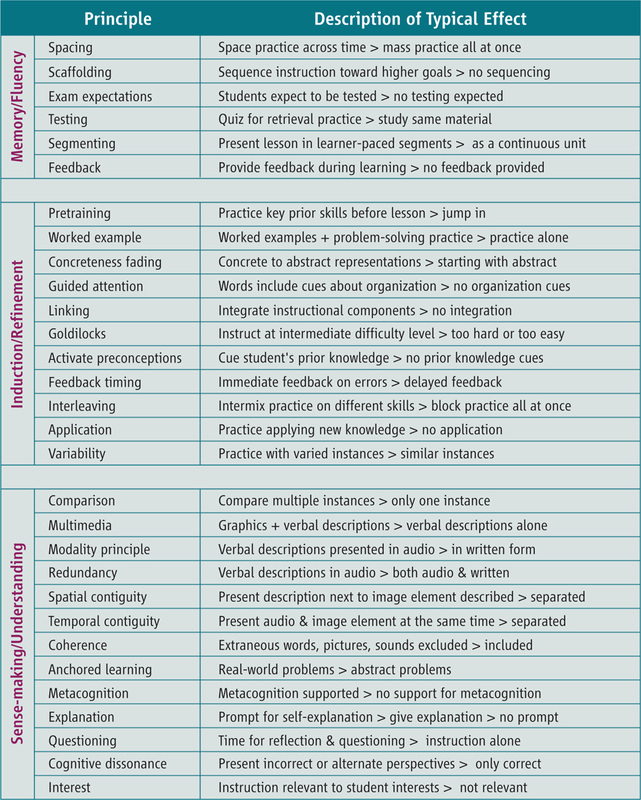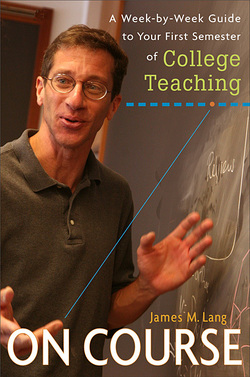
School for Soldiers: West Point and the Profession of Arms examines the people, institutions, and customs of the United States Military Academy at West Point, the nation's legendary resource for educating potential Army officers. The authors of the study are Joseph J. Ellis*, a successful historian of the American revolution, and Robert Moore, an American literature specialist with a particular emphasis on William Faulkner. Ellis and Moore researched their book when they were both young army officers assigned to short teaching stints at West Point. School for Soldiers was published in 1974, the same year that General David Petraeus graduated from the academy, and so provides a close examination of a particularly important generation of soldiers. The soldiers who graduated in 1974 were too young to serve in Vietnam, thrived in the unrestrained military spending of the Reagan years, survived the cuts of the Clinton years, and then (if they were not already retired) led American soldiers in Iraq and Afghanistan. West Point cadets serve as the backbone of the officer corps; they are the dependable individuals who desire to make at least a partial career out of soldiering. Back in 1974, Ellis and Moore took the time to investigate what exactly these officers were learning in college and, using anonymous interviews with instructors and cadets, what they thought about it.
Most (if not all) military academies, including West Point, exhibit the same basic attributes. The students operate within a regimented, military-like organization, with carefully regulated hours. Much time is spent developing attributes that will prove useful to a military officer, like physical fitness and attention to detail. The cadets, to some extent, police themselves. The freshmen (or plebes) follow the sophomores, who follow the juniors, who follow the seniors, who take guidance from tactical instructors and the official organizational heads of West Point. Student grades are public knowledge, and each cadet knows how he is faring compared with his peers. At the time of Ellis and Moore's book, the academy did not admit women; an act of Congress changed this policy in 1975. Cadets follow a straightforward path to graduation, with little room for electives or experimentation or clubs. The unrelenting emphasis is on graduating individuals who will prove useful officers to the United States Army. The academy's basic methods comes from the 'Thayer' system, a comprehensive military and educational tradition established by Sylvanus Thayer, a "cold, severe graduate of Dartmouth (1807) and West Point (1808) whose personal correspondence reads like a set of battle orders." Thayer led West Point from 1817 to 1833, and his main goal was to make West Point a prominent national institution. He succeeded absolutely. West Point became "an institution that knew what it was about, a place where a young American was remade in the image of Thayer himself." At first the academy churned out the young nation's premier corps of engineers; but since before the Civil War the emphasis has been on creating career military officers with only a secondary emphasis on the complexities of modern engineering, social science, or liberal arts methods. The military minds that come out of West Point retain the Thayer confidence, and the Thayer spirit.
The authors make much out of the "distinctiveness" of West Point's indoctrination methods. The school includes a two-month 'basic training' process for all incoming freshmen. Mid-career Army officers teach most of the classes, and they arrive at West Point fresh off of earning a Master's degree in a one or two-year period. Administrators, rather than looking for able educators, tend to recruit officers that seem likely to succeed in West Point's closely monitored conditions, and who themselves performed well as cadets. The authors, who themselves taught at West Point as young Army officers, found the 'Thayer system' stifling and odd; the resultant education (in their view) could not compete with elite educational opportunities offered at Harvard, or the best public universities. The cadets spent too much time conducting mind-numbing training exercises, obeying rote instructions, and scraping through their coursework, and not enough time in serious study. But by placing the socialization of West Point cadets in closer comparison to institutions elsewhere, the authors would have been forced to admit that much of higher education is, regardless of the institution, unfortunately (unavoidably) devoted to socialization and indoctrination, a point hit upon two years later in a famous book by sociologists Samuel Bowles and Herbert Gintis, Schooling in Capitalist America: Educational Reform and the Contradictions of Economic Life. An emphasis on discipline and unthinking obedience does not set West Point cadets apart--these types can be found anywhere, even the most prestigious liberal arts schools (see David Mamet's play Oleanna).
A liberal education costs so much time and money for the teacher, student, and community (and places traditional values at such risk) that it almost never occurs. A liberal education requires the participation of nearly every part of society, including family, friends, and government. The sort of person who goes to West Point for an education is, in part, looking for a place in an unusually stable social system, one with traditions that stretch back for two-hundred years. People attend West Point for reasons similar to why they "waste time" in fraternities, or athletics, or any other club: most people enjoy competing for status rewards and developing social networks in which those rewards hold stable value. Ellis and Moore's critique of West Point's 'negative' attributes lacks teeth when considered from a wider perspective.
The deeper point that they approach, however, is that the stakes are much higher for a West Point graduate than for a typical young American. The key attribute of a West Point graduate is deference to authority; this proves successful when the country pursues a unified foreign policy, but looks foolish or absurd during controversial moments, such as during the war in Vietnam. The authors believe the academy leaves West Point graduates with a capacity for ceaseless hard work, superb staff skills, excellent bureaucratic gamesmanship, and a necessarily useful ability to ingratiate themselves with key superiors. So West Point cadets will succeed in one way or another--the question is: What exactly are they succeeding at? And does a cadet's preparation at West Point help secure the country and satisfy the needs of the Constitution? West Pointers are particularly good at appearing on top of the problem, "But the difficulty for a military man is that, having mastered the ability of appearing to be on top of the problem, he is very reluctant to set his legerdemain skills aside and admit he doesn't understand the problem." This difficulty might be funny when examining the blustering of a newly hired advertising agent. But it is potentially tragic when officers lead soldiers into combat.
Ultimately, the exceptional nature of West Point is not that its education resembles mere training and socialization; what sets West Point apart is that its students, upon graduation, may immediately be placed in circumstances in which education would prove useful. A merely decent military career can be had with strict socialization and group discipline, but a truly great one requires liberal education and personal discipline. This argument has a moral quality to it, and it does not actually appear in Morris and Ellis' book. They skirt the issue, and rely on the reader's familiarity with the Vietnam war to provide the obvious context for the problem. This may be just as well. The authors seem aware that the problems they describe in the book lack any coherent answer given the social and political forces that buffet West Point from Washington DC, the United States Army, and West Point's influential alumni network.
School for Soldiers ultimately provides a useful, if overheated account of West Point in the 1970s. Ellis and Moore offer interesting insights into the lives of cadets and instructors at West Point, and sketch the inherent tensions between military life and academic pursuits. The book's heavy-handed critiques limit its value as a work that explores the nature of education in military settings. Their argument contrasts the lives of West Point cadets to the ideals of reputedly top flight academic institutions, a comparison of fruit versus trees. A fuller critique would require two steps. First, a comparative analysis of West Point cadets with undergraduates from other universities. Second, a historical consideration of those individuals who fit Ellis and Moore's vision of a 'proper' Army officer would help determine what exactly a West Point education should strive to provide. Despite these structural flaws, School for Soldiers ably introduces the basics of life at a cloistered military academy, and it does so with an engaging, thoughtful voice.
*Late in his career, Ellis received an academic suspension for fabricating major aspects of his own brief military career. He told students--and talk show hosts--that he served in Vietnam, and that this experience informed his study of our country's founders. He never served in Vietnam. West Point values integrity above almost every other attribute, so it is unfortunate but necessary to point out the tension between Ellis' achievement in School for Soldiers, and his own difficulty in satisfying the demands of the institution.



 RSS Feed
RSS Feed